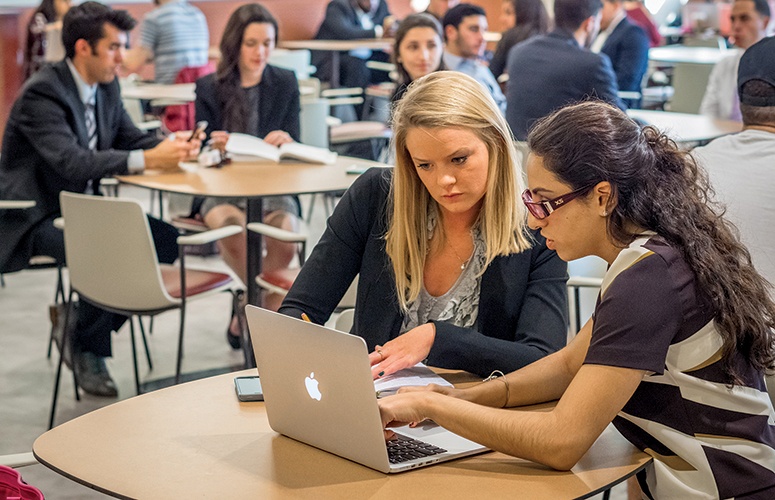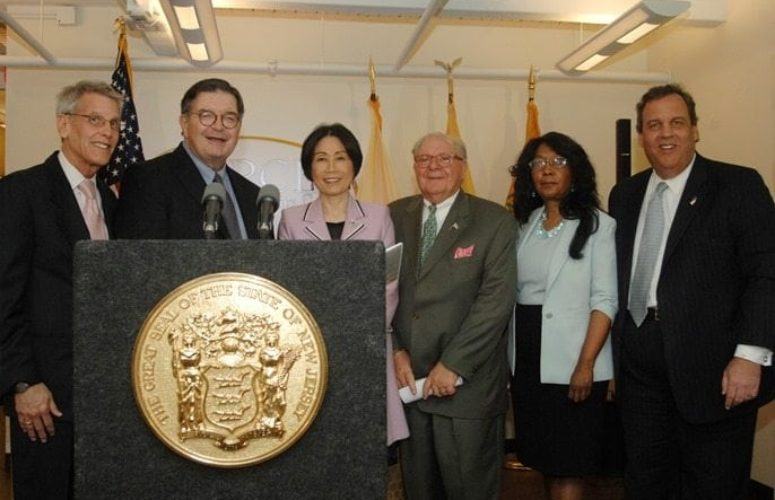
The Education of Working Students
Colleges and universities strive to offer graduate programs to students whose adult lives are a composite of unrelated deadlines and commitments.
By George N. Saliba, Managing Editor On Jul 31, 2018In tandem with graduate degrees increasingly becoming the “new credentials” necessary for career advancement in the 21st century, employed adults who seek them often have bustling personal schedules driven not only by work-related demands, but also childcare and elder care, for example.
Within this mosaic, colleges and universities are competing amongst each other for these students. And while the extent to which institutions’ graduate degree programs are “flexible” may be among the many various factors that prospective students consider when selecting a school, it is nonetheless a crucial determinant.
“When students are looking at institutions and degree programs, we find that they compare price and the value of the degree – and convenience is [also] certainly a big player in their [decisions],” explains Steven E. Goetsch, associate vice president for enrollment management and marketing, Felician University. He also says, “My own, personal opinion is that higher education is one of the most competitive markets (among colleges and universities).”
Janice Warner, PhD, acting provost, Georgian Court University, stresses, “For adult learners, the convenience factor is the No. 1 factor. If what we offer matches what [students] need and it is convenient, that is going to ‘win it.’ For our adult learners, especially at the master’s level, they are not looking at a whole bunch of different schools, if they are working. They are looking at their local [colleges and universities.]”
Additionally, citing an unpredictable labor market, D. Elaine Frazier, director of EMBA and graduate programs at the New Jersey Institute of Technology (NJIT), says, “Our experience suggests that adults are less inclined to leave a [career] position to obtain an MBA degree, full time, especially when they can work and attend school. Then, they have the best of both worlds: They can keep their jobs and get their degrees simultaneously.”
In Frazier’s experience, there are various reasons why students seek degrees in the first place, one of which consists of senior-level career professionals who, in effect, want to ensure their subordinates do not possess more academic credentials then they do. Other experts cite younger persons who might not only need graduate education for its own, practical sake, but also require it in a marketplace in which, in certain cases, the baccalaureate degree has arguably lost some of its cache.
Frazier says, “Whether the adult learner is an executive or analyst, he or she wants a seamless admissions process and a clear, unobstructed path to degree completion; I see that with everyone we deal with. That’s what students want … but equally as important: They want to gain some skills that can be immediately applied to their daily job functions.”
Susan Forquer Gupta, PhD, associate professor of marketing and international business, and MBA director, at Monmouth University, says, “It just seems like every student we get in the program has a lot of demands on his or her time, particularly the successful ones. What I mean by that is they are very driven, and they are trying to do everything. Or, they are given a lot of opportunity, because they are competent, and they have a tendency to need the most flexibility, but they also care a lot about their education, and they take it seriously, too.”
Flexibility Paradigms
There are near-endless iterations surrounding the ways in which colleges and universities are “flexible” for various students, including hybrid classes, when class time is divided between online participation and in-person classroom instruction. Separately, many college classes are held in the evenings as opposed to the daytime, once again, to accommodate working students. One educator even ventured that when he worked at a prior institution in a different state, it offered classes as early as 5 a.m. to avoid scheduling conflicts with students’ afternoon and evening schedules.
A different educator – Dr. Ed Petkus, Jr., dean of Anisfield School of Business at Ramapo College of New Jersey – adds, “If somebody is a working professional and his or her boss says, ‘You have go on a business trip next week’ – but he or she has two classes scheduled that week – we can use technology.
“Students are able to stipend, or otherwise use technology to be ‘here’ – so to speak – virtually. [Additionally,] we also have the ability to record lectures using software that [keeps] the professor talking in-synch with PowerPoint slides, and then that can be accessed by the students as well.”
Shorter Semesters
As previously detailed in New Jersey Business magazine, Seton Hall University, along with other institutions, may offer shorter academic semesters. This winter, Joyce A. Strawser, PhD., dean of the Stillman School of Business at Seton Hall University, said, “To be more flexible for students, instead of writing 15-week classes, we now run seven-week classes. That can be helpful if you have someone who works in a particular industry where he or she has a very defined busy season, a lot of travel or a big project scheduled.”
Evening and Weekend Classes
The points and counterpoints for obtaining a graduate degree can be debated, especially as certificate programs and industry credentials lure students with the promise of rapid returns on investment and associated lower price tags. That said, graduate degrees typically hold their value long term, and provide comprehensive, fundamental studies of the fields at hand. Graduate degree proponents cite that long-term return on investment and the notion that students’ careers span decades, not merely a few years. In this vein, a “web development” certificate from the 1990s could be considered not very useful today, while a masters degree in computer science from that era would likely still retain most of its value.
Siamack Shojai, PhD, dean, Cotsakos College of Business, at William Paterson Univerity, previously told New Jersey Business, “Prospective students still value the return on investment when they go to a graduate program. They know the field is extremely competitive; you can’t just get promoted – there are exceptions – without having a more advanced degree, either in your field or a related field. And, they also realize that the skills and the themes are changing so rapidly that they need to continuously retool. So, they come for certificate programs; they come back for stackable master’s degree program.”
A study by Sandy Baum, Ph.D., and Patricia Steele, Ph.D., released by the Urban Institute, titled, “Who Goes to Graduate School and Who Succeeds?,” reveals, “During the Great Recession, those with college degrees fared much better than those without degrees, but a number of college graduates struggled to find satisfactory employment, leading many to graduate study. The option of seeking an advanced degree has gained momentum in recent decades, and now some observers call the master’s degree the ‘new bachelor’s degree.’”
The millennial generation (persons born between approximately 1982 and 1999) is the most educated generation in American history. Generation Z (persons born after 1999) and Generation X (1965-1981) are often also striving to not only succeed in business, but gain a range of skills that will make them better world citizens during a time of change so substantial and rapid that, in recent centuries, it arguably compares only to the Industrial Revolution. Perhaps above all, the individual student must determine what are his or her life aspirations, at times above and beyond the day-to-day monetary considerations so many people ponder during their career ascensions. Some experts assert this must be weighed against the realities of the 21st century, again, in which data analytics, machine learning, automation and artificial intelligence are new images in the dawn of an unfolding technological era that permeates most aspects of our lives.
The Garden State has some 9 million residents and abuts both Manhattan and Philadelphia – major national and international metropolises. More than 60 colleges and universities dot New Jersey’s landscape, offering nearly every conceivable graduate degree, including the venerable MBA, now available in increasingly specialized iterations.
The Reality at Hand
As for the proverbial “busy student,” Felician University’s Goetsch, concludes, “The adult working student sometimes comes to an institution with a mish-mosh of previous programs of which they have been a part. They may have 15 credits from one institution, 10 from yet another, and 30 from another. They may be looking to finish their bachelor’s degree, or an adult student could be looking to get a graduate credential to enhance his or her career or knowledge in a particular area. … They are a great ‘market’; they are a great type of student; they typically do very well. But, they have a lot going on in their lives.”
To access more business news, visit NJB News Now.
Related Articles:






